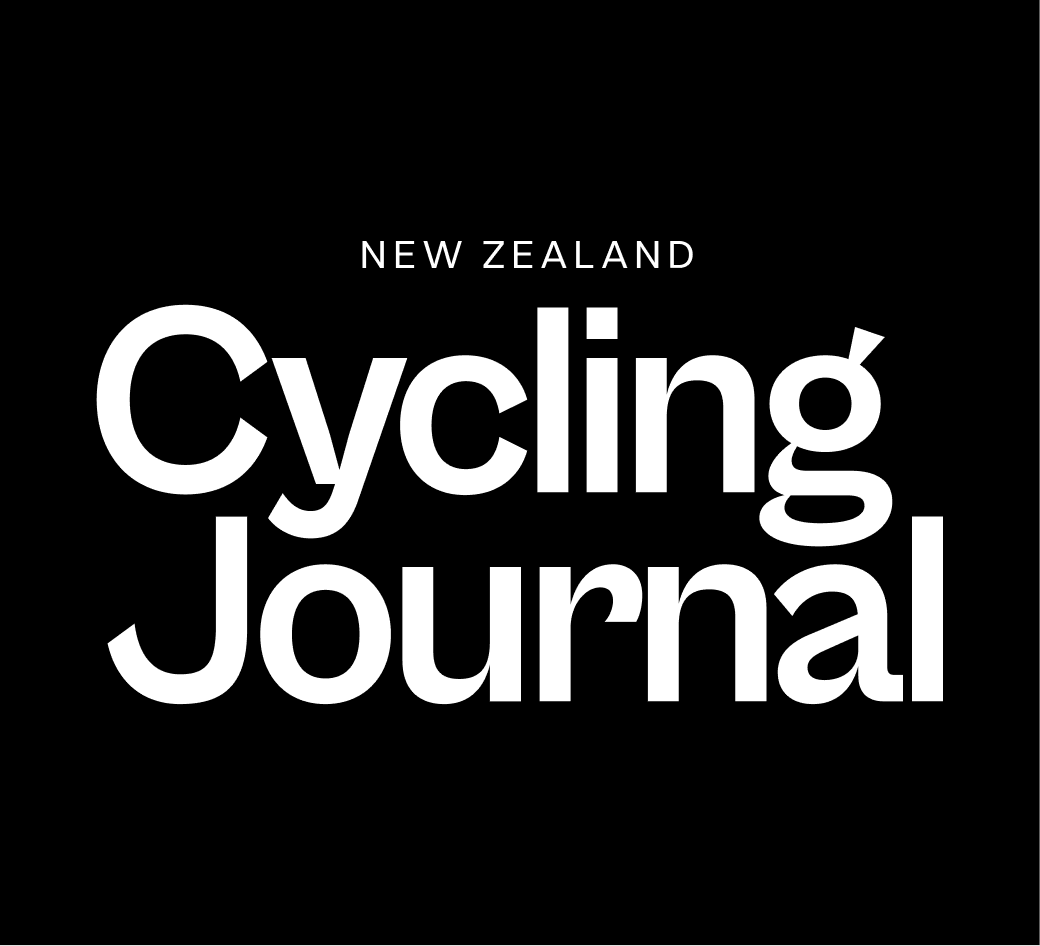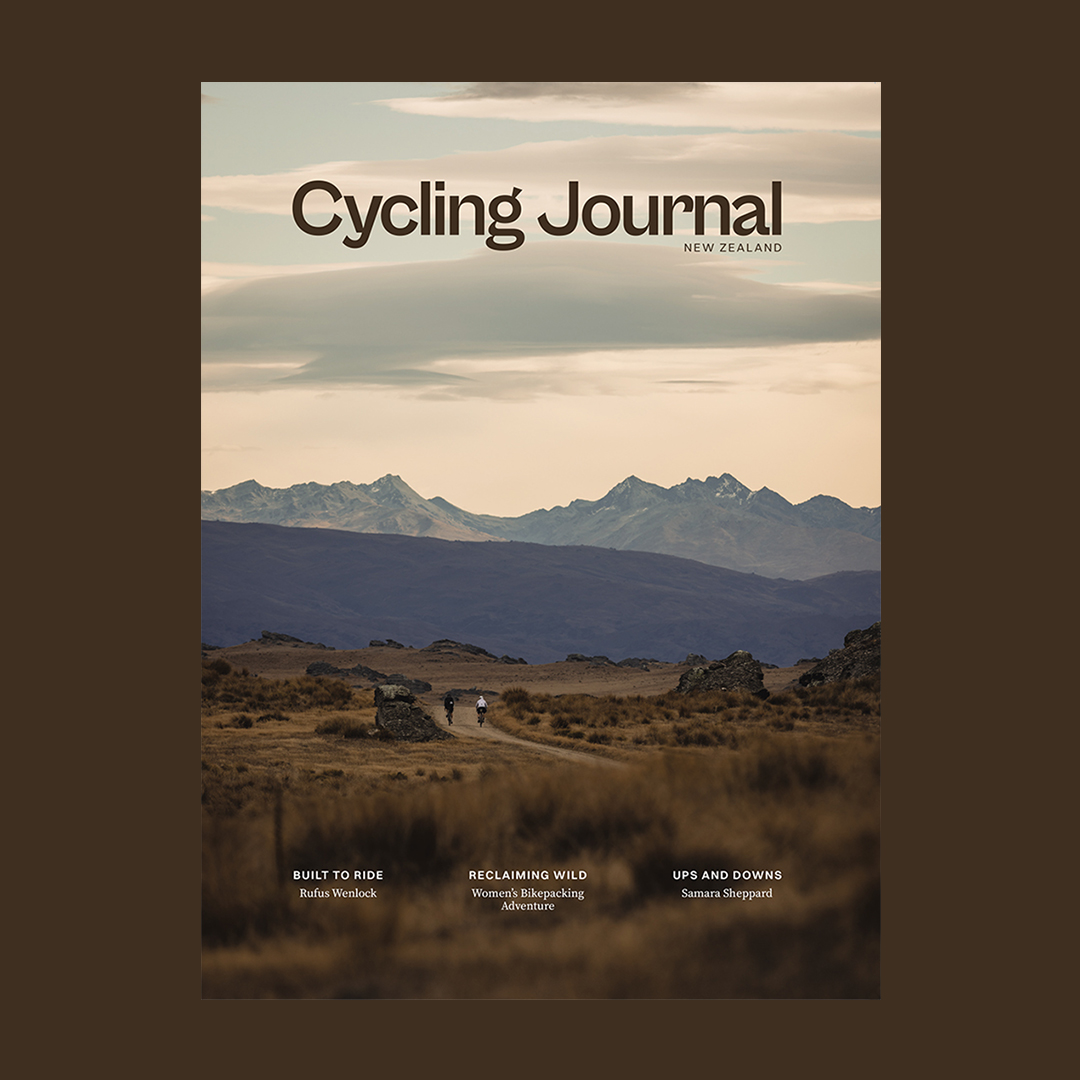Words Lester Perry
Images Phillip Sage
For over ten years, Samara Sheppard has been quietly going about her business, making moves and climbing the global off-road racing ranks.
From Wellington PNP races and NZ National Series events, to U23 XCO World Cups and Marathon World Championships, her career up until 2024 had been primarily based around mountain biking. The new year brought a change in focus and renewed motivation, prompted by a maiden voyage at the ABSA Cape Epic and a run at the US-based Lifetime Grand Prix series.
Born in Clyde, Central Otago, Samara’s family moved to Wellington in her fourth year. Raised in an active family, she was destined to become an athlete of some sort. “My dad was into adventure racing and endurance events like the Coast to Coast and Ironman. My brother also took to cycling but steered more towards downhill racing, as well as rugby. We mostly all ran cross- country. Mum would taxi us around. My sister, a brilliant swimmer and very intelligent – she often found smarter ways to spend her time.”
Not one to be pigeonholed into a single sport, Samara “played every sport under the sun and particularly enjoyed gymnastics from a young age, then onto netball, soccer and cross-country running”. In years to come, this excitement for running would ultimately open the door to mountain biking for her.
“I had a lot of energy as a kid and was able to channel this into gymnastics. But, as I was getting older and other sports like netball and soccer became available, gymnastics was becoming a full-time sport. I quit gymnastics to try out new things. I remember some Saturdays when I was around 12 years old; I would have soccer first thing, then a game of netball, then a running race, and then dance practice. Hardly surprising that I developed a taste for endurance sports!”
After being sidelined by a running injury, Samara’s father steered her toward mountain biking as a way to stay sane. “Once I discovered how awesome it was to adventure through Wellington’s hills and around NZ, I was hooked. I started racing straight away in the local PNP club events and loved the buzz.”
School life provided two critical things for Samara: socialisation – she wanted to hang out with her friends all day – and the schoolwork satisfied her competitive spirit. “I always found maths easy, and I treated the work like a race, always trying to be the first to complete the work with accuracy. I think I still have the record at Churton Park School for quickest to complete the basic facts sheets.”
By high school, when she could choose her own subjects, MTB had started to rule her existence: “I chose to do the minimum subjects needed to pass NCEA so I could spend more time riding my bike.”
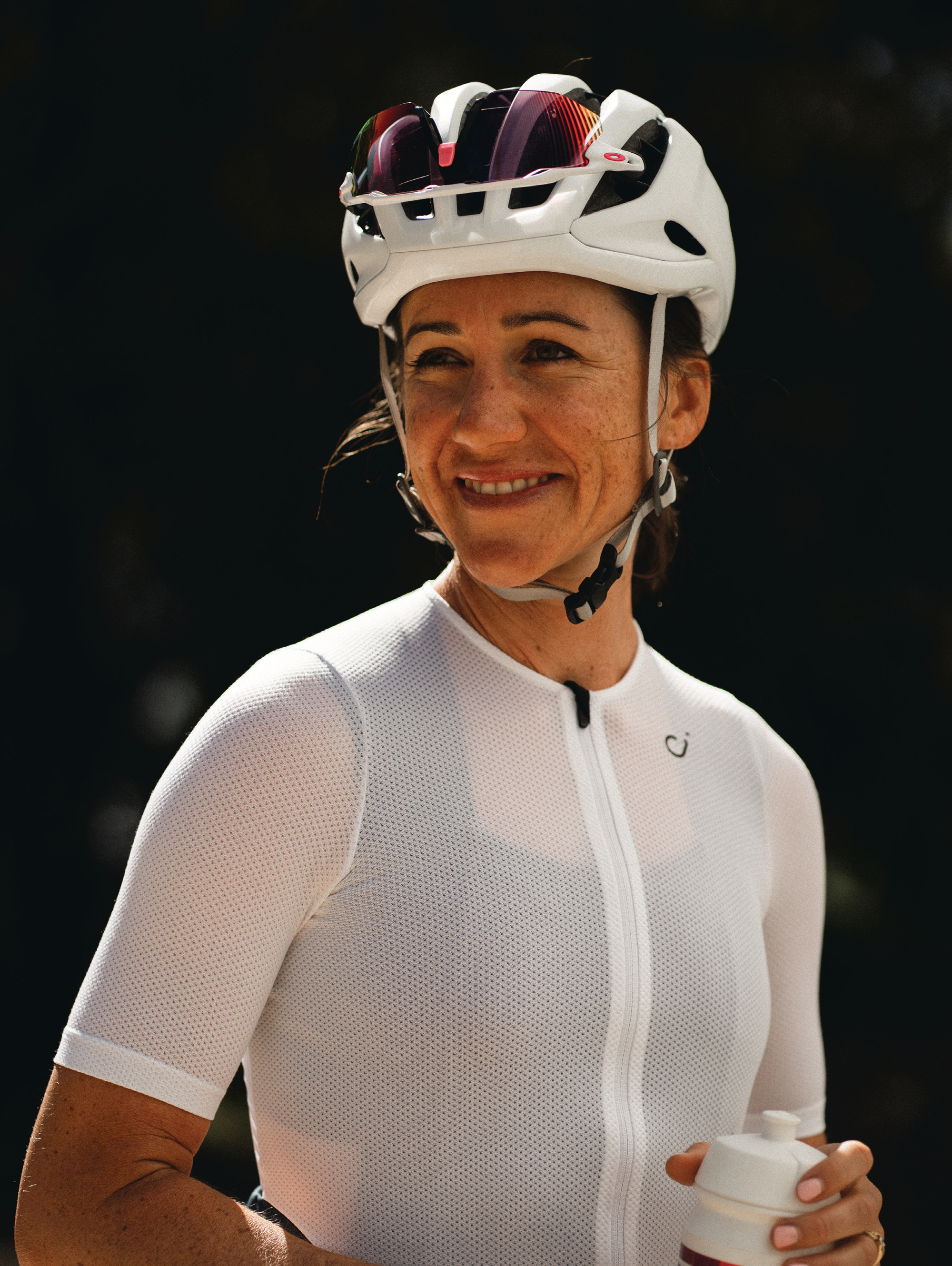
“My first seasons racing XCO in Europe as U23 were pretty exciting – getting to explore the world and racing against the best there is. The people you get to spend time with, new experiences, and the racing buzz is always rewarding. This year is exciting because it’s a whole new scene (to me) racing in the US, but it’s an easy one to navigate as it’s an English- speaking country and where the industry gets behind privateer riders. It’s really exciting to work with some of the best brands in the business and challenge myself in various off-road race formats.”
Although Samara continues to compete globally, the inspiration to keep pushing herself comes from those closest to her: “I’m inspired by my dad, the ‘old boys’ in Wellington, and the riders I’ve had the pleasure of competing against and riding with over the years. Today, my biggest influence comes from my husband, Kyle. He always keeps cycling fun and designs the best routes to ride. I’ve always raced well when I’m having fun. And Kyle has been a major influence for that over the past eight years.”
Many athletes appear one-dimensional, all- consumed by their pursuit of physical excellence, but Samara’s not one of them. Over the COVID lockdowns, with borders closed and racing paused, many cyclists took the opportunity to get a solid training block, emerging from the period fit and raring to go. Samara chose to further herself over the period and emerged with a master’s in public health. “I couldn’t leave our local government area, and there were no races. I was working part-time at a health clinic but was out of work with all the restrictions. I decided I needed a challenge and was motivated to get a reliable job through times like those. I was also aware of how lifestyles were becoming more sedentary and could see in the healthcare clinic the impacts that has. After the pandemic, I ended up taking on a role with Wollongong Tourism as a UCI Bike City Coordinator to help make cycling an easy option for people in the city.”
When US-based Argentinian racer Sofia Gómez Villafane was on the hunt for a 2024 teammate to try and reclaim the overall title she and Haley Batten (USA) won in 2022, Sofia’s 2023 teammate, Katerina Nash, suggested Samara could be a good fit. Both have similar backgrounds, transitioning from the short XCO discipline to the more endurance- focused marathon XC and gravel-style races. Sharing Specialized as a sponsor ticked the first box, and Samara’s palmares spoke for themselves: 6th at the 2023 MTB Marathon Worlds Champs, Oceania Marathon Champ, and NZ Champion, amongst other strong results; Sofia knew they were in for a strong performance. The southern hemisphere pair would take the start as an unknown quantity. Although this was to be Sofia’s fourth Cape Epic, it would be Samara’s first, and the pair hadn’t raced as partners before. South Africa wasn’t completely uncharted territory for Sheppard, however, as she’d raced the World Cup in Stellenbosch back in 2018.
The pair ultimately finished 3rd at the Absa Cape Epic, Samara becoming the first Oceania rider to finish on the podium at this prestigious event.
Weeks later, the pair lined up for the Lifetime Grand Prix (LTGP) opening round at Sea Otter Classic, Monterey, California, racing head-to-head rather than as a team. Carrying strong form from the Cape Epic, Samara took the podium, finishing second, just behind Sofia – a solid start to the Life Time series. “I took confidence from Cape Epic and a deep strength in my legs which set me up for a perfect start to the LTGP. Backing this up with a result at Sea Otter helped secure more industry support that has made the rest of the LTGP possible.“
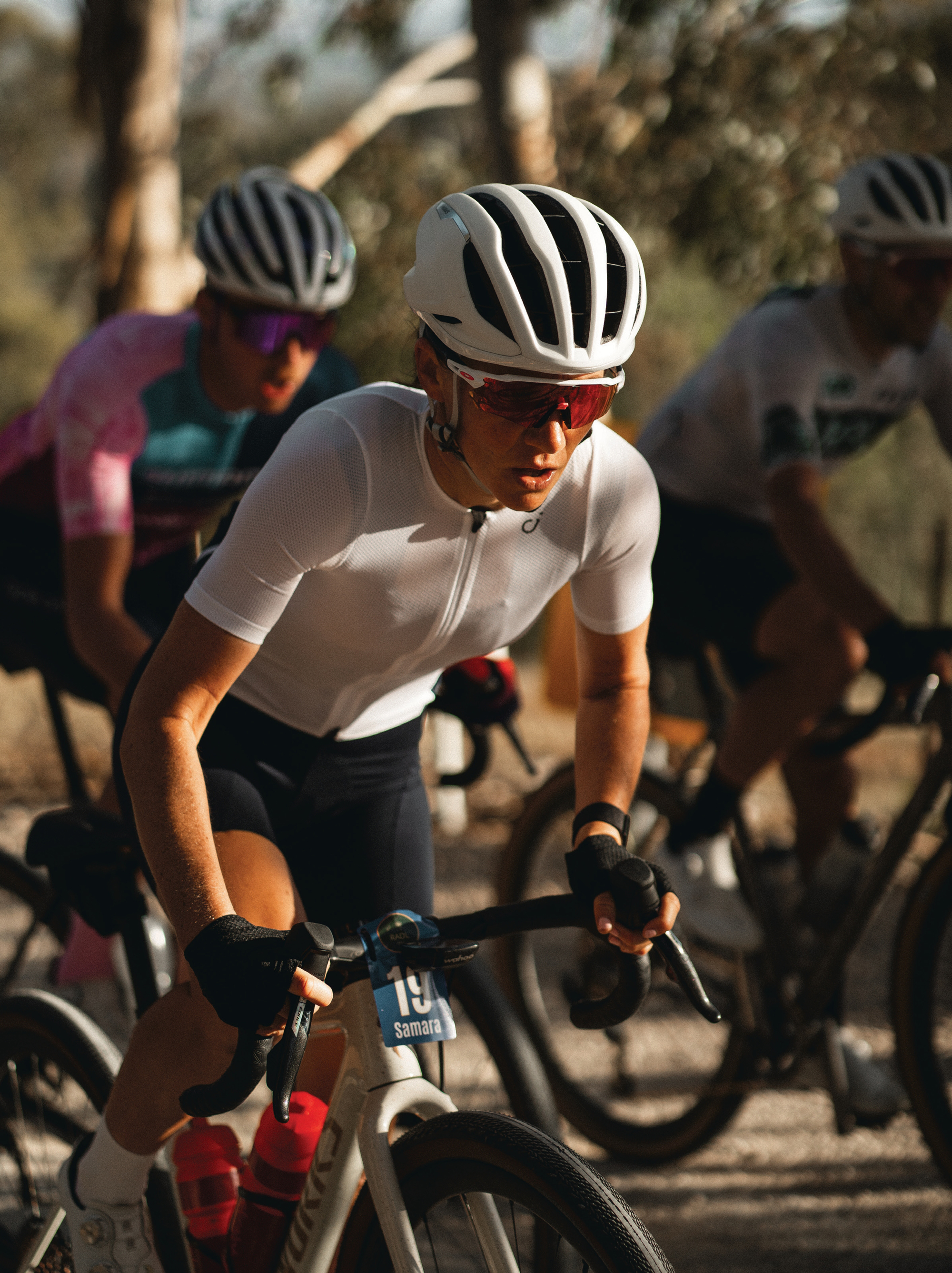
Taking on a series that not only covers a long time span but also criss-crosses the US, provides some unique challenges; her first LTGP series has thrown her some serious curveballs. “As a privateer, the initial challenge was securing enough support to do it. Then there’s the logistics of traveling around the US, which is just gigantic; navigating visas so we don’t overstay; and finding a home base in the US, as travelling back and forth wasn’t realistic. Races from April to October. Extremely long endurance events. High altitude prep.”
Fortunately, Samara was lucky to become part of the Orange Seal (OS) Academy, easing the financial strain and providing top-notch coaching support, working alongside ex-world-tour pro, Dennis van Winden. “Not only do they make excellent tyre sealant, OS also get behind riders and have created a community in the US with their OS Academy. If it weren’t for John, the owner of OS, and Dennis, the Academy lead, it wouldn’t have been possible to race the LTGP this year. I owe this season to their encouragement and support.”
The LTGP has been a significant learning experience. Unfortunately, some of the learnings have been to the detriment of her performance. The Leadville Trail 100 MTB race is renowned as one of the toughest races in the world. Over its 170km, the course covers a massive 3,600 metres of elevation gain, reaching a peak altitude of 3,800 metres – roughly the same as the peak of Aoraki Mt Cook. “Everyone responds differently to altitude. With two rounds of the LTGP being at high altitude, I made the call to come over to the US three weeks ahead of the first one to acclimatise. By the time Leadville came around, I had spent seven weeks at high altitude (around 2000m). It’s hard to feel good on the bike at altitudes above 3000m, so I would consider doing multiple smaller blocks next time around.”
“Coming into this season, I thought a 100km MTB race very long. Racing Leadville this year opened my mind to what it’s like to race all day. Well, for nearly eight hours, over the 170km MTB course. The longest race in the LTGP – Unbound – is 320km long. Unbound was my drop race this year because I couldn’t fathom how to race that far. After the race, I had a bit of FOMO, so I’ll be working on getting my head and body around racing for 320kms next season!
“Then there have been other challenges like a herniated disc in my back that flared up, getting bitten by a dog whilst out training, which sent me to hospital for ten stitches in my arm and a mighty dose of antibiotics, then recovering from a concussion after hitting my head on the ground racing SBT Gravel (non-LTGP race). The most challenging part remains – to achieve what I set out to do: I took on the LTGP because I believe I have what it takes to finish on the overall podium. The challenge remains to make it happen.”
Following SBT, the circus was off to Chequamegon, where she finished 10th and scored 7th place points (three non-LTGP riders in front of her). Samara was showing signs she was on the way back from her injuries and looking strong heading into the Marathon World Championship and the final two LTGP rounds.
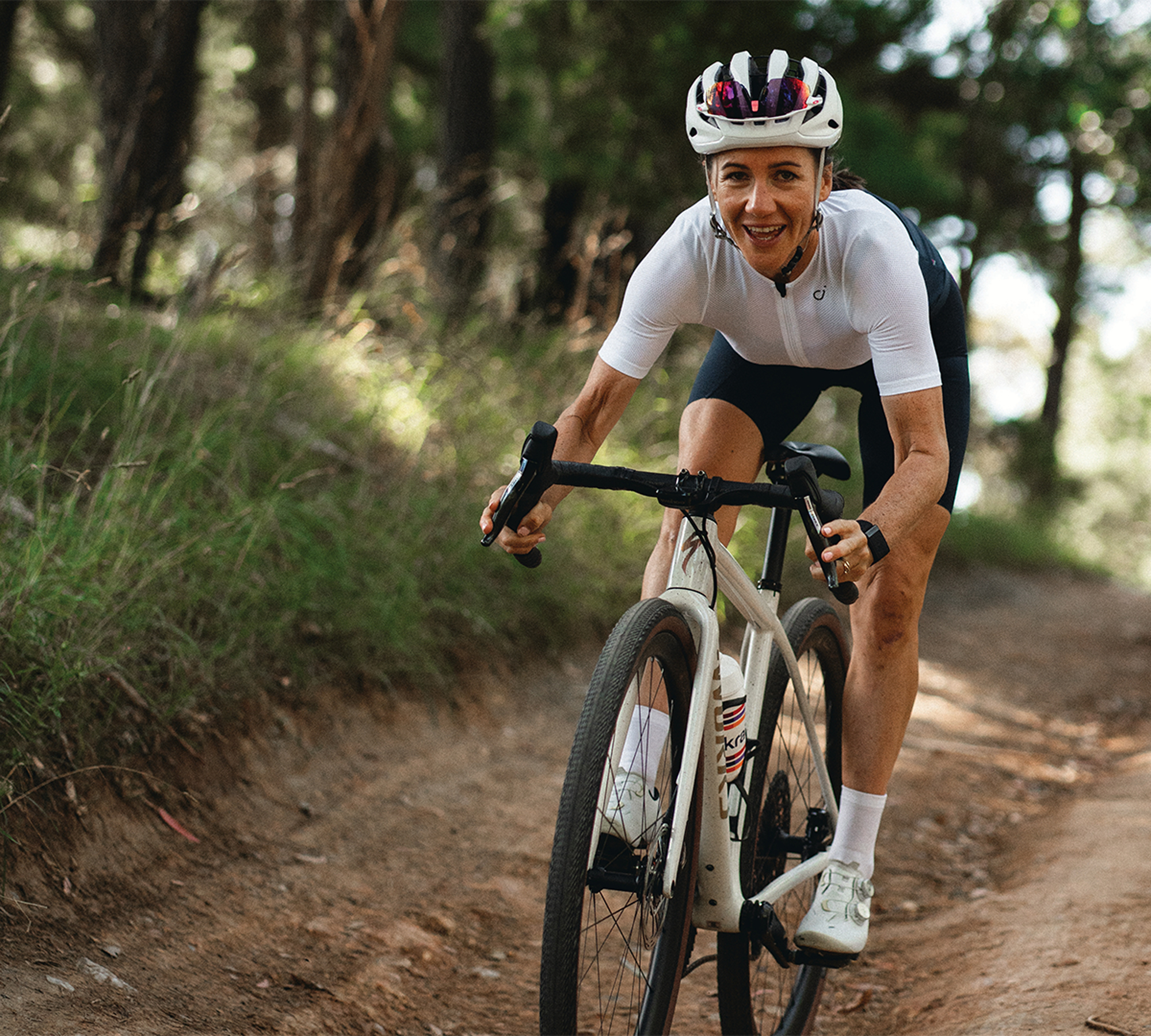
Next up was to be the UCI World Championships in Snowshoe, West Virginia. Once again, luck wasn’t on her side. “It was my first ride on the Marathon Worlds course, and the course markings and .gpx files didn’t match up, so I was a bit lost. I’d found some friends to try to figure out the course with. It had been raining for a few days, so the trails were slippery. I was following one of my speedy friends down a technical section, and I didn’t see a small stump that I clipped my pedal on. I went over the bars and hit my knee hard on a rock slab, slicing it open, causing swelling and aggravating my bursa. It also triggered some concussion symptoms from a crash I’d had four weeks prior.”
“It was really sad to miss out on racing Worlds. I’ve loved the buzz of World Champs ever since I watched XC Worlds in Rotorua in 2006 and competed in my first World Champs in Scotland in 2007. It’s a special opportunity to represent your country and race the best in the world, chasing a rainbow jersey—a big goal of mine, especially after finishing 6th last year and 5th in 2019.”
Unfortunately, her injuries sidelined her for LTGP round six, The Rad Dirt Fest, so her focus shifted to the final round – Big Sugar in Bentonville, Arkansas. “This season has had its fair share of highs and lows. Dealing with so many injuries and setbacks in one season has been tough, especially since I took a break from work to compete in the U.S. The smaller setbacks, like being bitten by a dog and splitting my knee open, were relatively minor and straightforward. But the concussion has been a completely different challenge. Every concussion is unique, and people can only tell you to be patient and take your time. You just can’t push through symptoms like you can with other injuries.
“I remind myself that there’s more in life I want to achieve, and for that, I need a healthy brain. I try to be kind to my body, not overthink things, and focus on what I can control – like getting enough sleep, eating well, and appreciating where I am. Having a strong support system with Orange Seal Academy, led by Dennis van Winden, who checks in every day and brings a wealth of data to guide decisions, has been a big help. Making a plan based on both data and intuition helps me stay positive and keep moving forward.”
Now in its third year, the LTGP has been refined and built on each successive season, but there’s still work to be done. “I don’t like how the women’s races are influenced by men who are racing on the course at the same time. It’s great that the pro women have their own start wave this year, but if the women could race on a clear course, that would make the racing safer and more fair.”
The LTGP is the largest offroad cycling series in the world, and even though the pointy end of the competition gets most of the media attention, all seven rounds of the series attracts thousands of everyday riders keen to toe the line against the pros. “It’s also super inviting for beginners to pro riders. Combining the LTGP with mass participant events creates a fun community buzz. The LTGP are doing great things to develop fandom, like with the incredible docos they release 48 hours after the race, the pro panel discussions, autograph signings and ways they promote their series.”
“Once the season is over, my focus will be on recovery and building toward 2025. I aim to come back even stronger and wiser. My goals are still big, with plans to return for LTGP in 2025 and tackle a mix of endurance and ultra-endurance gravel and mountain bike events. I’m excited for what’s ahead.”


